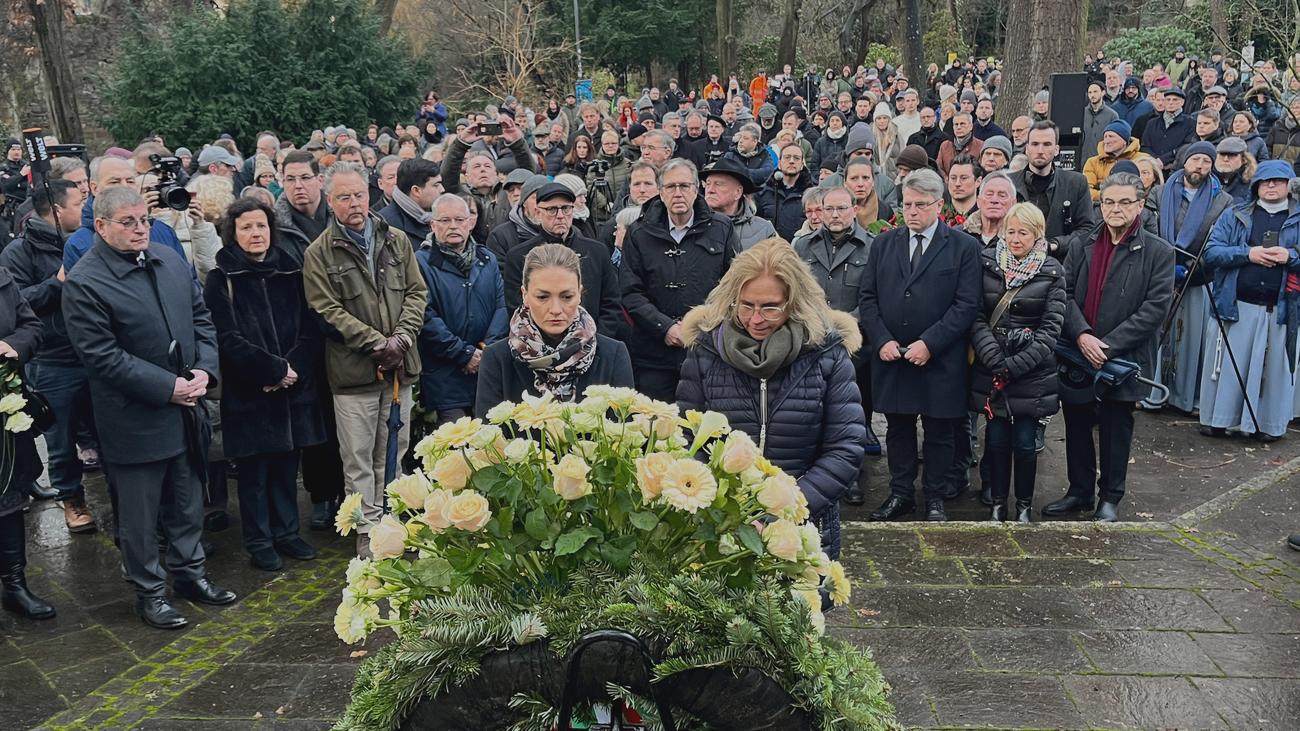Aschaffenburg: Debatte Um Unterbringung Psychisch Erkrankter Eskaliert

Aschaffenburg: Debatte Um Unterbringung Psychisch Erkrankter Eskaliert. Discover more detailed and exciting information on our website. Click the link below to start your adventure: Visit Best Website. Don't miss out!
Table of Contents
Aschaffenburg: Debate Over Housing for the Mentally Ill Escalates
Aschaffenburg is facing a heated public debate regarding the housing of individuals with mental illnesses, with tensions reaching a boiling point. Recent proposals for new facilities have ignited fierce opposition from residents, highlighting the complex challenges of balancing community needs with the provision of adequate mental healthcare. This escalation underscores the urgent need for a thoughtful and inclusive approach to addressing mental health issues in the city.
Rising Concerns and Public Outcry
The proposed expansion of mental health facilities in Aschaffenburg has sparked significant public concern. Residents have voiced anxieties regarding safety, property values, and the potential strain on local resources. Several public forums have devolved into heated exchanges, with strong emotions on both sides. The lack of transparent communication from city officials has only exacerbated the situation.
Key concerns raised by residents include:
- Safety: Concerns over potential increased crime rates and the safety of residents, particularly children.
- Property Values: Fears that the proximity of mental health facilities could negatively impact property values in the surrounding neighborhoods.
- Resource Allocation: Questions regarding the adequacy of funding and support services for both residents and the facilities.
- Lack of Transparency: Criticism of the city's communication strategy and the perceived lack of public consultation during the planning stages.
Advocates for Mental Health Services Respond
Advocates for improved mental healthcare in Aschaffenburg argue that the current situation is unsustainable. They highlight the critical shortage of adequate facilities and the resulting impact on individuals struggling with mental illness. They emphasize that integrating individuals with mental health needs into the community is crucial for their recovery and well-being. These advocates stress the importance of destigmatizing mental illness and fostering a culture of understanding and support.
Their counterpoints include:
- Emphasis on Community Integration: Advocates highlight the benefits of community-based care and its positive impact on recovery rates.
- Addressing Stigma: They emphasize the need to combat negative stereotypes and promote a more compassionate understanding of mental illness.
- Improved Safety Measures: Proponents of the new facilities emphasize the security measures implemented to ensure the safety of both patients and the community.
- Economic Benefits: Advocates point to the potential economic benefits of creating employment opportunities in the mental healthcare sector.
Finding a Path Forward: The Need for Dialogue and Collaboration
The escalating debate in Aschaffenburg necessitates a constructive dialogue between all stakeholders. This includes city officials, residents, mental health professionals, and advocacy groups. Finding a solution requires open communication, transparent planning, and a commitment to addressing the concerns of all involved. A balanced approach that prioritizes both the needs of individuals with mental illness and the safety and well-being of the wider community is essential.
What needs to happen next?
- Increased Transparency and Public Consultation: City officials must engage in open and transparent communication with residents, ensuring ample opportunities for feedback and input.
- Community Engagement Initiatives: Implementing initiatives to foster understanding and break down stigma surrounding mental illness.
- Improved Mental Healthcare Infrastructure: Investing in comprehensive and accessible mental health services to meet the needs of the growing population.
- Focus on Community-Based Care: Prioritizing community-based care models that support individuals in their recovery while integrating them into the community.
The situation in Aschaffenburg serves as a stark reminder of the urgent need for thoughtful and inclusive approaches to mental health care planning. Moving forward, collaboration, communication, and a shared commitment to addressing this critical issue are paramount. Only through such a united effort can Aschaffenburg find a path towards a solution that benefits everyone.

Thank you for visiting our website wich cover about Aschaffenburg: Debatte Um Unterbringung Psychisch Erkrankter Eskaliert. We hope the information provided has been useful to you. Feel free to contact us if you have any questions or need further assistance. See you next time and dont miss to bookmark.
Featured Posts
-
 Primeiras Impressoes O Novo Gremio Em Acao Na Estreia De 2025
Jan 24, 2025
Primeiras Impressoes O Novo Gremio Em Acao Na Estreia De 2025
Jan 24, 2025 -
 Escalacoes Confirmadas Atletico Mg Enfrenta O Democrata
Jan 24, 2025
Escalacoes Confirmadas Atletico Mg Enfrenta O Democrata
Jan 24, 2025 -
 Eerste Kijk Samsung Galaxy S25 En Zijn Ai Kracht
Jan 24, 2025
Eerste Kijk Samsung Galaxy S25 En Zijn Ai Kracht
Jan 24, 2025 -
 Bipolarismo E Famiglia Britti La Verita Sulla Malattia Di Umberto Padre Di Alex
Jan 24, 2025
Bipolarismo E Famiglia Britti La Verita Sulla Malattia Di Umberto Padre Di Alex
Jan 24, 2025 -
 Campeonato Paranaense Athletico Pr E Operario Pr Duelam Em Jogo Equilibrado
Jan 24, 2025
Campeonato Paranaense Athletico Pr E Operario Pr Duelam Em Jogo Equilibrado
Jan 24, 2025
